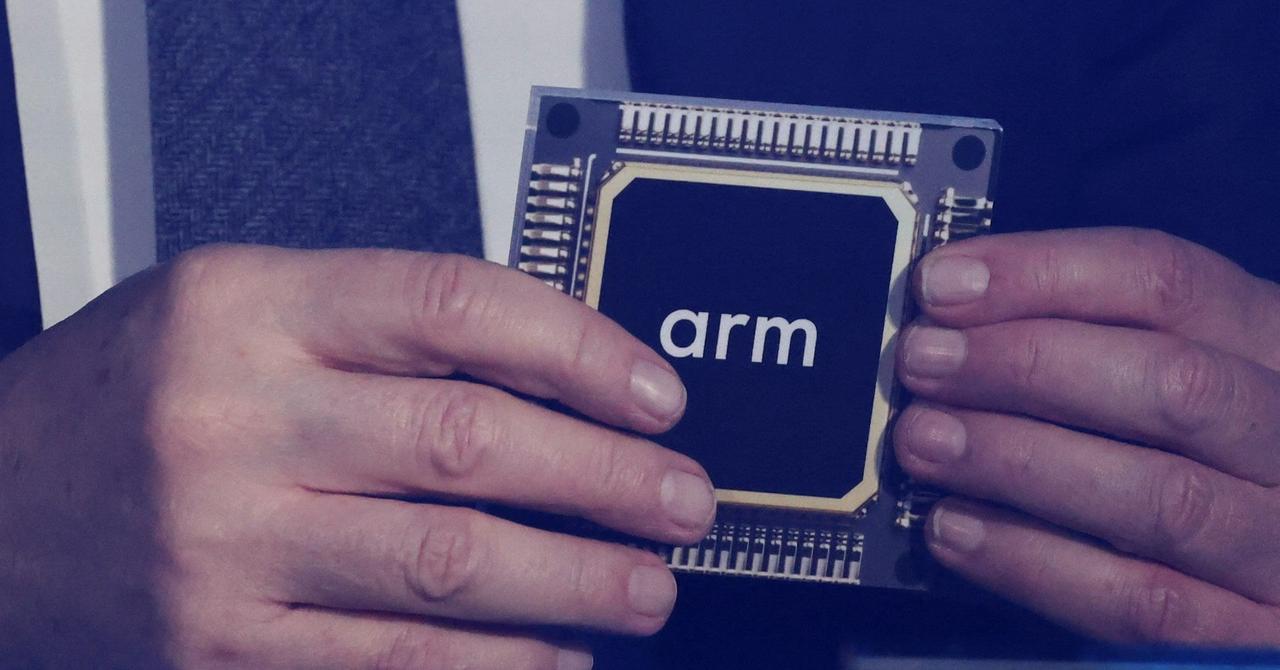Arm Expands AI Licensing Program to Boost On-Device AI Market Share
2 Sources
2 Sources
[1]
Arm expands AI licensing program to boost on-device AI market share
The Flexible Access programme allows companies to use its chip design tools and training for little or no cost, enabling them to build and test new chip concepts. Companies including hardware firms Raspberry Pi, Hailo and SiMa.ai have participated in the program, Arm said. Arm Holdings said on Monday it is expanding its Flexible Access licensing program to cover its Armv9 edge AI platform, aiming to attract startups and device makers developing on-device AI by lowering entry barriers and accelerating design cycles. The Flexible Access programme allows companies to use its chip design tools and training for little or no cost, enabling them to build and test new chip concepts. Companies including hardware firms Raspberry Pi, Hailo and SiMa.ai have participated in the program, Arm said. Why it's important Opening up the licensing program strengthens Arm's ties with AI startups and on-device AI providers that might otherwise be priced out by costly licenses, positioning Arm to embed its technology across emerging AI devices. Context Arm is expanding to fortify its position in the burgeoning edge AI market, where it faces growing competition from rivals such as Nvidia, Intel, as well as newer players. Companies from self-driving vehicle makers to retail inventory software developers are adopting edge AI, which runs artificial-intelligence models on devices such as smartphones and laptops to process data on the spot rather than sending it to the cloud. By the numbers Arm said more than 300 companies have joined the program, with 400 chip designs completed and ready for manufacturing. Earlier this month, Qualcomm shifted its flagship chips to Arm's v9 architecture, sources exclusively told Reuters. Market reaction Arm's shares rose 4% to $172.23 after the news. Up to last close, the stock had gained 34.2% this year.
[2]
Arm expands AI licensing program to boost on-device AI market share
(Reuters) -Arm Holdings said on Monday it is expanding its Flexible Access licensing program to cover its Armv9 edge AI platform, aiming to attract startups and device makers developing on-device AI by lowering entry barriers and accelerating design cycles. The Flexible Access program allows companies to use its chip design tools and training for little or no cost, enabling them to build and test new chip concepts. Companies including hardware firms Raspberry Pi, Hailo and SiMa.ai have participated in the program, Arm said. WHY IT'S IMPORTANT Opening up the licensing program strengthens Arm's ties with AI startups and on-device AI providers that might otherwise be priced out by costly licenses, positioning Arm to embed its technology across emerging AI devices. CONTEXT Arm is expanding to fortify its position in the burgeoning edge AI market, where it faces growing competition from rivals such as Nvidia, Intel, as well as newer players. Companies from self-driving vehicle makers to retail inventory software developers are adopting edge AI, which runs artificial-intelligence models on devices such as smartphones and laptops to process data on the spot rather than sending it to the cloud. BY THE NUMBERS Arm said more than 300 companies have joined the program, with 400 chip designs completed and ready for manufacturing. Earlier this month, Qualcomm shifted its flagship chips to Arm's v9 architecture, sources exclusively told Reuters. (Reporting by Anhata Rooprai in Bengaluru, Stephen Nellis and Max Cherney in San Francisco; Editing by Tasim Zahid)
Share
Share
Copy Link
Arm Holdings is expanding its Flexible Access licensing program to include its Armv9 edge AI platform. This move aims to attract startups and device makers developing on-device AI by lowering entry barriers and accelerating design cycles.

Arm's Strategic Move in the AI Chip Market
Arm Holdings, a leading chip design company, has announced a significant expansion of its Flexible Access licensing program to include its Armv9 edge AI platform. This strategic move is aimed at attracting startups and device makers who are developing on-device AI solutions by lowering entry barriers and accelerating design cycles
1
2
.The Flexible Access Program
The Flexible Access program is designed to provide companies with access to Arm's chip design tools and training at little to no cost. This initiative enables businesses to build and test new chip concepts without the burden of expensive licensing fees. Notable hardware firms such as Raspberry Pi, Hailo, and SiMa.ai have already participated in the program, showcasing its appeal to a diverse range of companies in the AI and hardware space .
Impact on the AI Ecosystem
By expanding this program to include its Armv9 edge AI platform, Arm is strategically positioning itself to embed its technology across a wide range of emerging AI devices. This move strengthens Arm's ties with AI startups and on-device AI providers who might otherwise be priced out by costly licenses. The initiative is particularly significant in the context of the growing edge AI market, where companies from various sectors, including self-driving vehicle manufacturers and retail inventory software developers, are adopting AI models that run directly on devices like smartphones and laptops
2
.Market Position and Competition
Arm's expansion comes at a time when the company is facing increasing competition in the burgeoning edge AI market. Rivals such as Nvidia, Intel, and newer players are all vying for market share in this rapidly growing sector. By lowering barriers to entry and fostering innovation among startups and smaller device makers, Arm aims to fortify its position and maintain its competitive edge
1
2
.Related Stories
Program Success and Future Outlook
The Flexible Access program has already shown significant traction in the market. Arm reports that over 300 companies have joined the program, resulting in 400 chip designs completed and ready for manufacturing. This success demonstrates the program's value to the industry and its potential for driving innovation in AI chip design
2
.In a related development, sources have exclusively revealed to Reuters that Qualcomm, a major player in the mobile chip market, has shifted its flagship chips to Arm's v9 architecture. This move further underscores the importance of Arm's technology in the evolving AI landscape
2
.Market Reaction
The announcement has been well-received by investors, with Arm's shares rising 4% to $172.23 following the news. This positive market reaction reflects confidence in Arm's strategy and its potential impact on the company's future growth in the AI sector
1
.References
Summarized by
Navi
[2]
Related Stories
Recent Highlights
1
ByteDance's Seedance 2.0 AI video generator triggers copyright infringement battle with Hollywood
Policy and Regulation

2
Demis Hassabis predicts AGI in 5-8 years, sees new golden era transforming medicine and science
Technology

3
Nvidia and Meta forge massive chip deal as computing power demands reshape AI infrastructure
Technology








